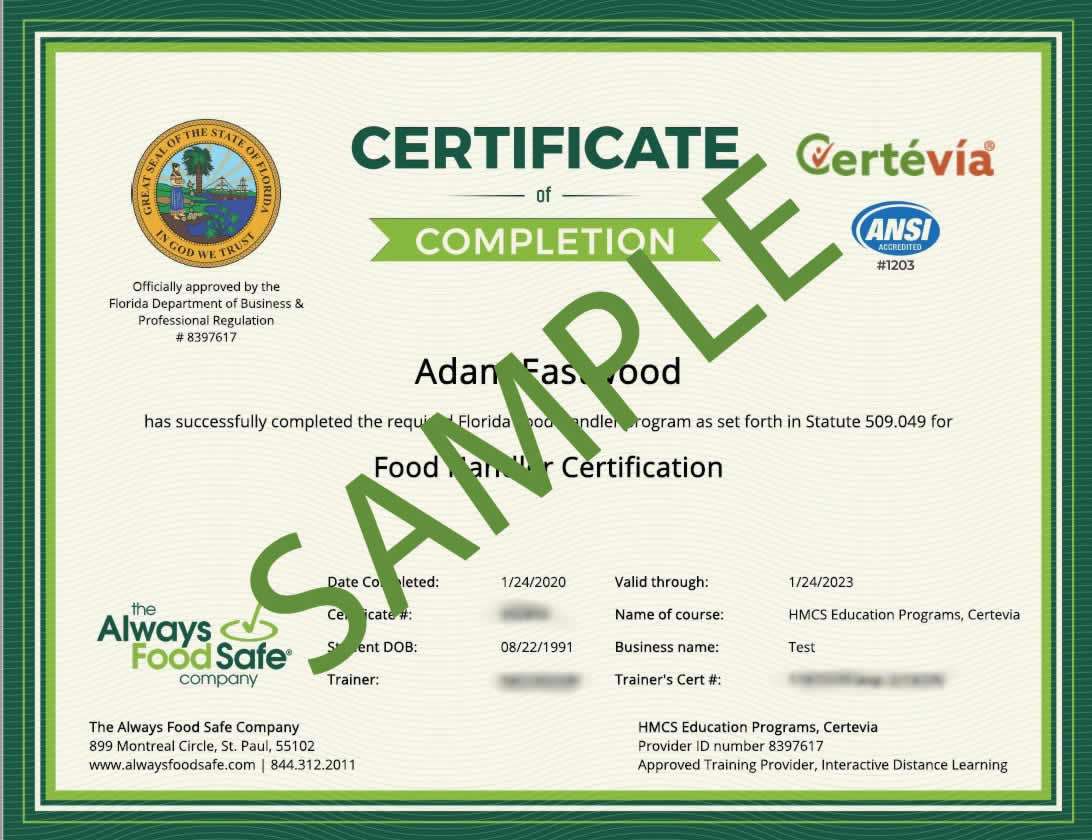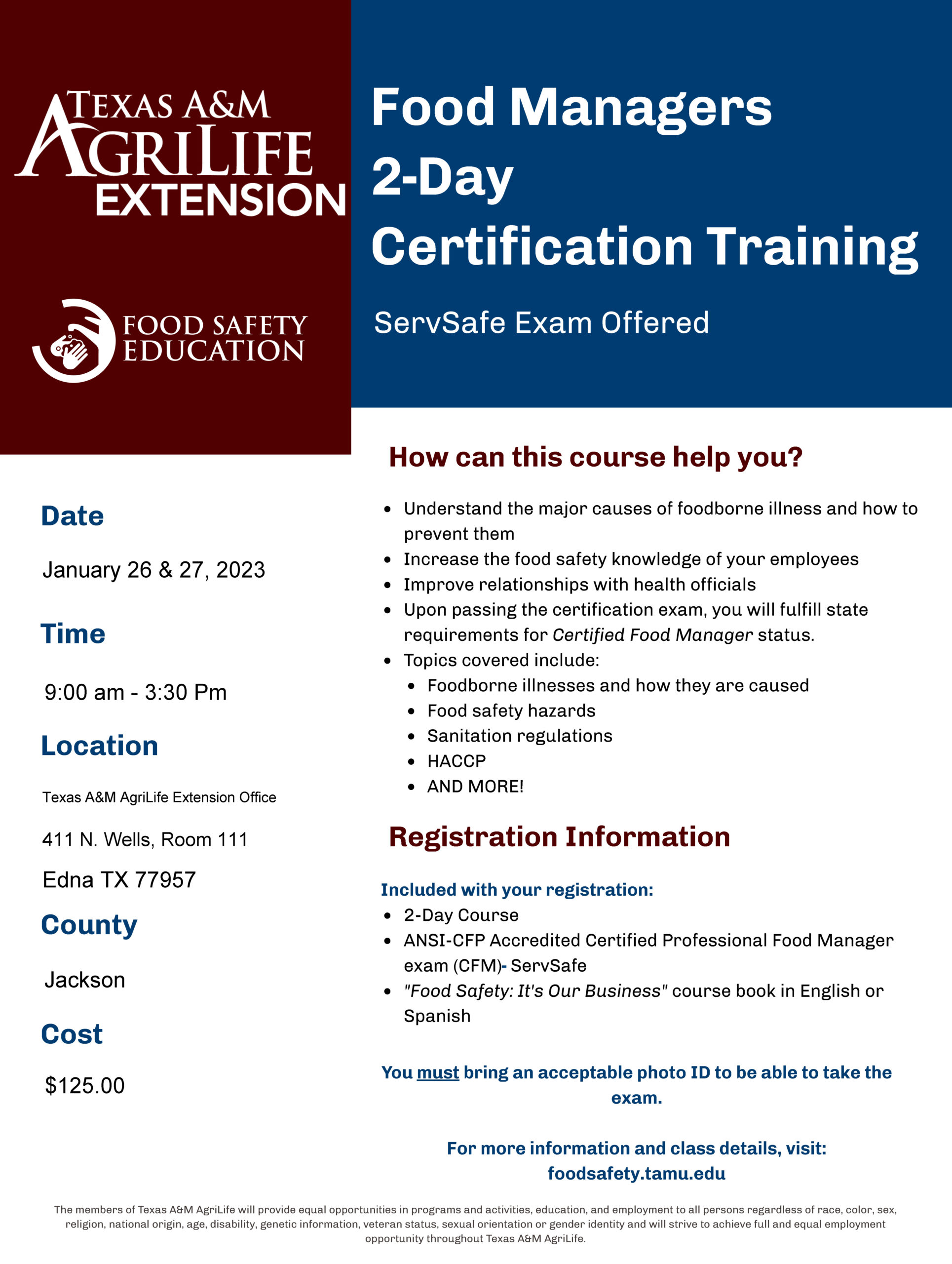Exactly How to Obtain Your Food Supervisor Qualification Rapidly
Acquiring your Food Supervisor Accreditation efficiently calls for a systematic strategy, starting with a comprehensive understanding of the specific needs in your area. Many individuals neglect vital aspects that can further expedite this process, which may considerably affect their accreditation journey.
Research Qualification Needs
Aspiring food supervisors must first identify which accreditations are recognized and requisite in their jurisdiction. This typically entails assessing local legislations and laws that determine food safety and security techniques and the qualifications required for supervisory placements. Understanding the eligibility criteria, such as prior experience in food solution or associated fields, is vital.

Choose a Reliable Training Program
Selecting the best training program is a crucial step after determining the accreditation requirements in your area. The performance of your training can considerably affect your understanding of food security concepts, which are important for passing the accreditation test. Begin by researching programs certified by credible organizations, such as the American National Standards Institute (ANSI), as these commonly abide by industry standards.
Take into consideration the training layout that finest matches your discovering design. Choices include in-person classes, on the internet courses, or a hybrid approach. Online courses offer versatility, enabling you to examine at your own rate, while in-person sessions provide immediate interaction with instructors and peers. Evaluate the curriculum to guarantee it covers crucial subjects such as foodborne health problems, sanitation, and risk-free food handling techniques.
Look for evaluations and testimonials from previous participants to assess the program's efficiency. In addition, ask about the certifications of the teachers, as knowledgeable fitness instructors can supply useful understandings. Validate that the program includes detailed products and resources to help in your learning. By thoroughly picking a training program that straightens with your demands, you can boost your preparation for the food supervisor accreditation test.

Prepare for the Test

Make use of research study products that line up with the test's framework. Several companies offer research guides and method examinations, which can be important in determining your understanding and readiness. Participate in active knowing methods, such as flashcards or seminar, to improve retention of vital details.
Furthermore, consider attending evaluation programs or workshops that supply comprehensive coverage of vital topics. These sessions often consist of expert insights that can clarify intricate ideas and enhance your understanding.
Schedule Your Exam Day
Selecting the best time to arrange your examination day is a critical action in the accreditation process. Choosing a proper date permits you to allot sufficient time for preparation while stabilizing various other personal and expert commitments. Consider your current workload and any type of forthcoming occasions that may sidetrack you from concentrated research.
Purpose to arrange your examination after completing your preparatory coursework and technique tests. This ensures you feel great in your understanding and abilities. In addition, think about scheduling your test for a day when you are normally at your most sharp and focused, as psychological clearness can substantially affect performance.
It is also a good idea to inspect the availability of exam slots in your area, as some places might have restricted openings. Scheduling your exam well ahead of time can aid you secure a recommended time and place. Be aware of the accreditation's expiry policies, as picking a date also much in the future might lead to a lapse in your understanding.
Eventually, the goal is to discover an equilibrium between preparedness and schedule, ensuring you approach your test with self-confidence and a strong foundation of expertise.
Maintain Your Certification
Keeping your accreditation is vital for making sure recurring competence and conformity in food monitoring methods. Qualification usually calls for revival every 3 to 5 years, depending upon the releasing organization. To remain current, it is essential to comprehend the specific revival demands of your certification body, as they might vary.
Continuing education is a key part of preserving your certification (ServSafe Food Manager Certification). Taking part in workshops, workshops, or on-line courses connected to food health, security, and administration practices not just enhances your knowledge however might also satisfy revival demands. In addition, several certification organizations supply resources and training sessions to aid you remain notified about the most up to date sector criteria and regulations
Exercising excellent food monitoring within your office is similarly crucial. On a regular basis applying your expertise and see this website abilities reinforces your competence and may supply documents that shows adherence to finest practices.
Finally, keep internet track of your certification's expiration day and any type of called for documents for the renewal procedure - ServSafe Food Manager Certification. Proactively handling these elements will make certain that you maintain your accreditation without interruption, permitting you to proceed giving risk-free and efficient food monitoring in your specialist environment
Final Thought
Attaining Food Supervisor Qualification efficiently demands a critical approach that includes extensive study of regional demands, option of a suitable training program, and diligent prep work for the assessment. Prompt scheduling of the examination adhering to conclusion of training is important to avoid unneeded hold-ups. Additionally, staying educated about revival demands guarantees the upkeep of qualification status. By sticking to these laid out actions, individuals can efficiently browse the certification procedure and improve their specialist credentials in food monitoring.
The course to getting food supervisor accreditation is not consistent; it differs substantially depending on local guidelines and the specific certification program picked. The performance of your training can significantly affect your understanding of food safety principles, which are necessary for passing the accreditation exam. By meticulously choosing a training program that straightens with your requirements, you can enhance your prep work for the food see this here supervisor accreditation test.
Detailed prep work is vital for success on the food supervisor qualification test.Accomplishing Food Supervisor Qualification effectively requires a tactical technique that includes complete study of local demands, selection of a proper training program, and thorough prep work for the assessment.